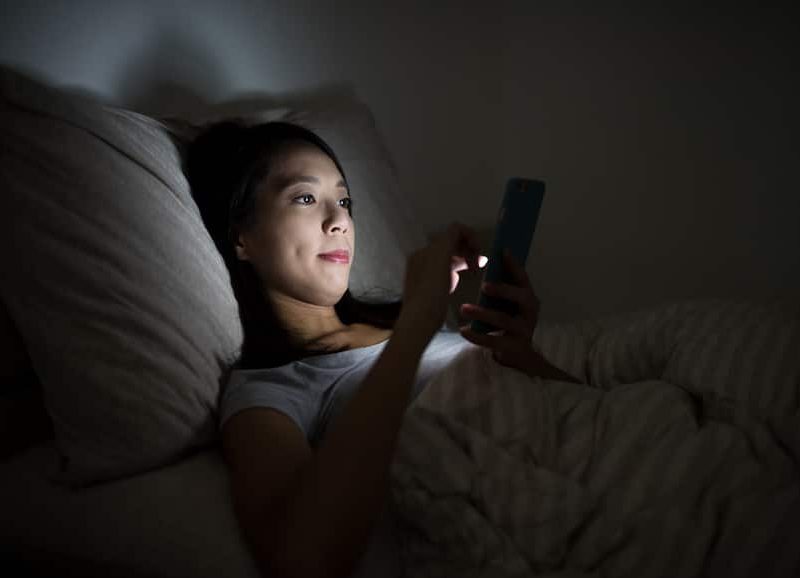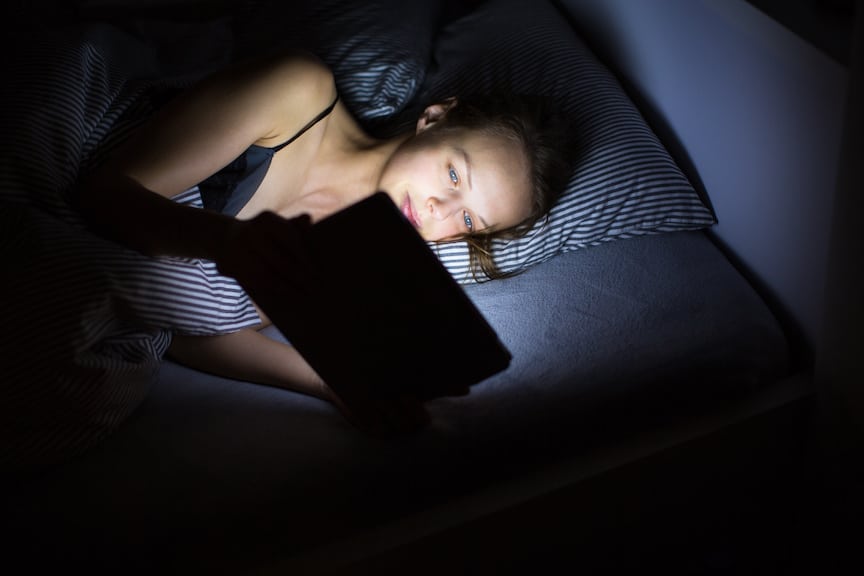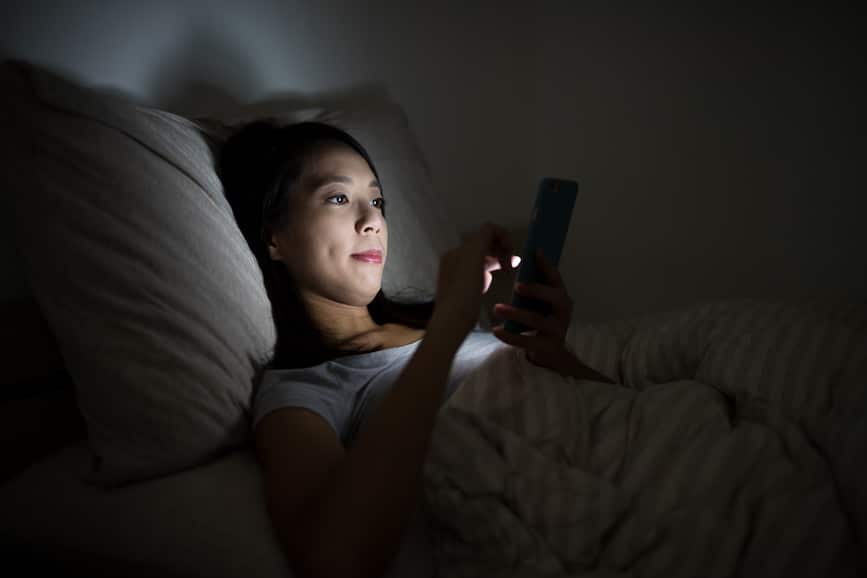Harnessing the Healing Power of Melatonin

Melatonin is often referred to as the “Dracula of Hormones,” because it only comes out at night. It is a hormone that helps you sleep by synchronizing your sleep cycle with the rising and setting of the sun. As the sun begins to set, your pineal gland (a pea-sized gland just above the middle of the brain) starts ramping up its production of melatonin, which helps your mind and muscles relax. Peak production occurs sometime in the middle of the night, helping you stay asleep. Starting in the early morning (around 3 to 4 a.m.), your pineal gland ramps down its melatonin production, and over the course of several hours completely shuts down production.
People who have lower than normal levels of melatonin often have trouble falling asleep or staying asleep. As a result, they may wake up the next day feeling tired, and they may struggle to get through the day. They may also experience anxiety or mood changes. (Melatonin is a precursor to serotonin, a neurotransmitter that is often deficient in people with depression.) Women may experience worsening of menopausal symptoms, including hot flashes, heart palpitations, morning depression, and irregular cycles.
Melatonin is also instrumental in converting thyroxine (T4) into its active form triiodothyronine (T3), which gives the body energy and helps it generate heat. A low level of melatonin may be related to certain symptoms of hypothyroidism.
As you age, your body may produce less melatonin, which can increase the risk and severity ofsymptoms.
Recognizing the Health Benefits of Melatonin
Melatonin is not only a key hormone for sleep, but also a powerful antioxidant that delivers numerous health benefits, including:
- Improved sleep — for both falling asleep and staying asleep (it is one of few natural sleep aids proven to help)
- Relief from jet lag
- Stress/anxiety relief
- Reduction in symptoms of overactive bladder and other bladder dysfunction — It may help to increase bladder capacity and decrease urine volume
- Alleviation of symptoms of tinnitus (ringing in the ears)
- Improved sleep and daytime behavior in children with developmental disorders, including those on the autism spectrum
- Potential adjunct treatment for breast and prostate cancers
- Potential treatment for menopausal symptoms, including sleep problems and depression
- Cardio-protective properties — anti-inflammatory and antioxidant that can help to lower blood pressure and cholesterol and possibly reduce and treat cardiovascular disease
- Potential treatment for pain associated with fibromyalgia and migraines
- Immune system regulator
Keeping the Lights Off and the EMFs Out at Night
Modern living has certainly contributed to improving our creature comforts and keeping us entertained. Microwave ovens, televisions, computers, video games, smart phones, Wi-Fi Internet, and artificial light have all extended our days and given us plenty of good reasons to wake up earlier and stay up later. Unfortunately, all of these devices, and perhaps even the electricity that powers these devices, interfere with the body’s biological mechanism for producing melatonin at night.
Even if you’re just watching TV or looking at your smart phone screen after the sun sets or before it rises, or you have night lights on or electronic devices around your bed, your body may be picking up signals that tell it to shut down your melatonin production. Of particular concern are night lights or any other artificial light that enters your bedroom while you’re asleep; for example, street lights or lights left on in adjacent rooms. Electromagnetic forces (EMFs) and electromagnetic radiation (EMR) emitted by electronic devices and even the electrical wiring in your home compound the problem, even though these sources emit no light.
To reduce the negative effects of artificial lighting and electronics on your melatonin production and on the quality of your sleep, consider the following:
- Ideally, go to bed when the sun sets, and get out of bed when the sun rises. (Admittedly, this is unrealistic for most people, especially those who work the second or third shift.)
- Try going to sleep and getting up at the same times every day to establish a regular sleep routine.
- Stop watching TV or looking at any computer and smart phone screens at least one hour before bedtime. These sources contain a high concentration of blue light, which interferes with sleep even more than does white light.
- Dim the lighting in your home at least one hour before bedtime.
- Make sure the room you sleep in is so dark, you can’t see your hand. You don’t want any light streaming in from windows or adjacent rooms. If you can’t prevent light from streaming in or you need to sleep during the day, wear an eye mask to block out the light.
- If you need a nightlight, place it in an adjacent room and use a red bulb — red light is less disruptive.
- If possible turn off your Wi-Fi at night, because it emits EMFs that can disrupt sleep. (Again, this is often unrealistic, but if you’re having trouble sleeping, you can try turning off Wi-Fi to see if it helps; you may be sensitive to it.)
Measuring Light: Lumens and Lux
Light is measured in units of lumens and lux. Lumen is a measure of light’s intensity. Lux takes into account the distance of the light source — the farther you are from the source, the less intense is the light reaching you. To give you some idea of the relative intensity of different light sources, if you’re outside in the sun on a sunny day, the light is likely to be in the range of about 150,000 lux; on a cloudy day, the lux rating may be as low as 1,000 lux. A typical well-lit home (light from outside and inside) has a lux rating in the range of 300-500 lux. If you need light to read in the evening, you want your reading light to be no higher than 180 lux. And when you go to bed, you want the lux rating in your room to be no higher than 5 lux.
Packaging for light bulbs contains lumen ratings. To determine the lux rating for a room, you can buy a light meter online or at your local hardware store or even get an app that enables you to use your smartphone as a light meter (although a smart phone may not provide the same level of accuracy).
Remember, your body is the best doctor you will ever have, but you must provide it with what it needs to do an effective job — proper nutrition, healthy amounts of mental and physical activity, restorative sleep, and avoidance of anything that might harm it, such as smoking and overconsumption of alcohol. Give your body what it needs, and it can care for itself.



